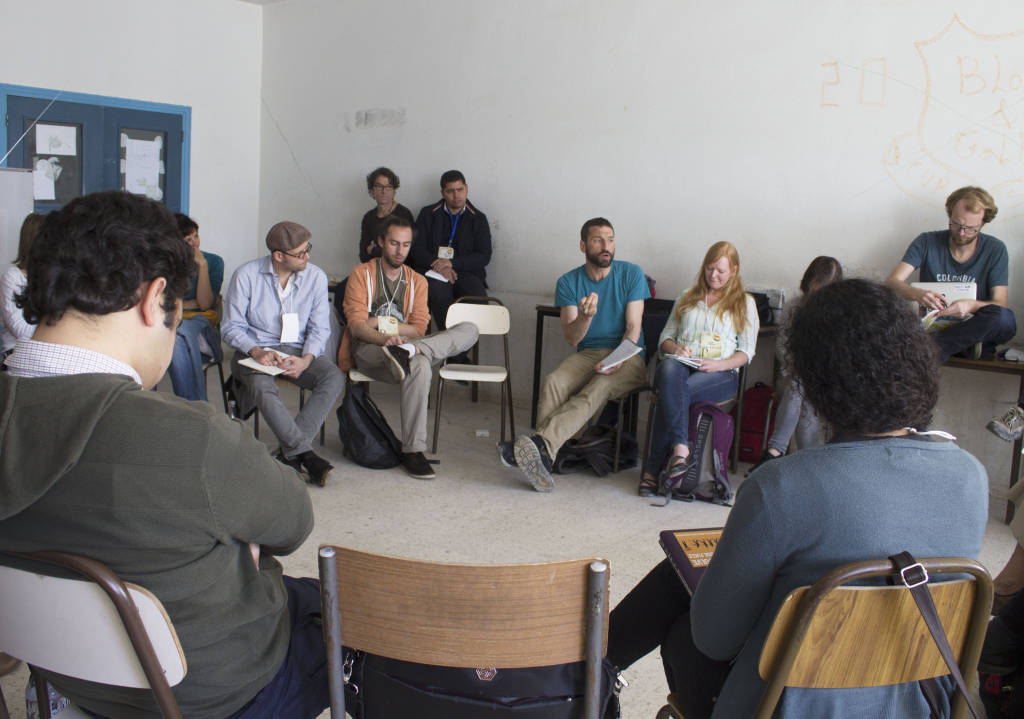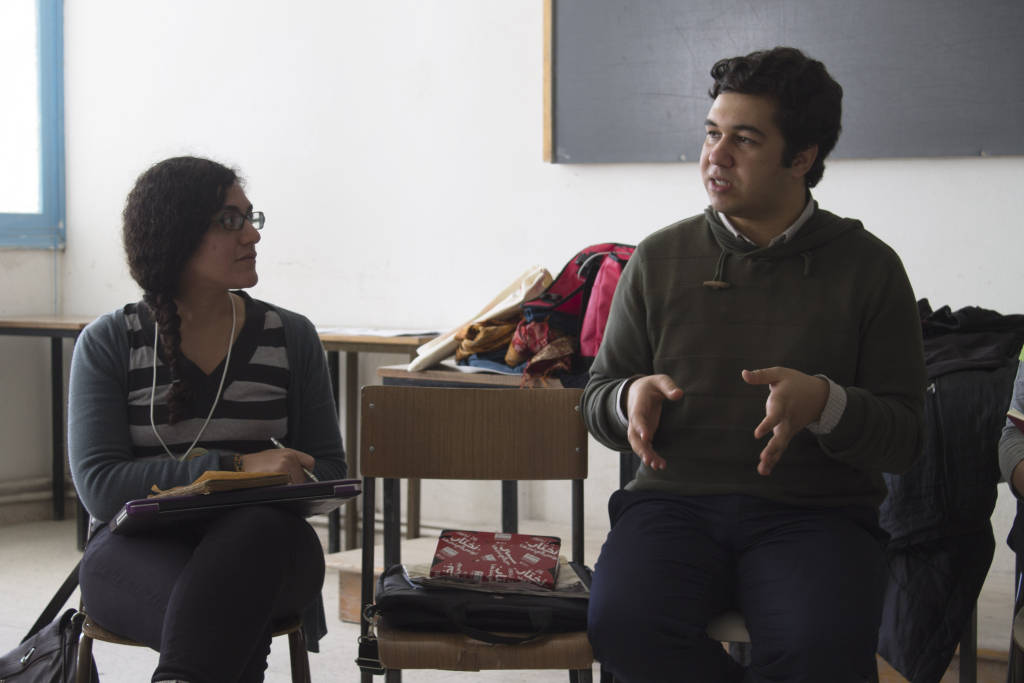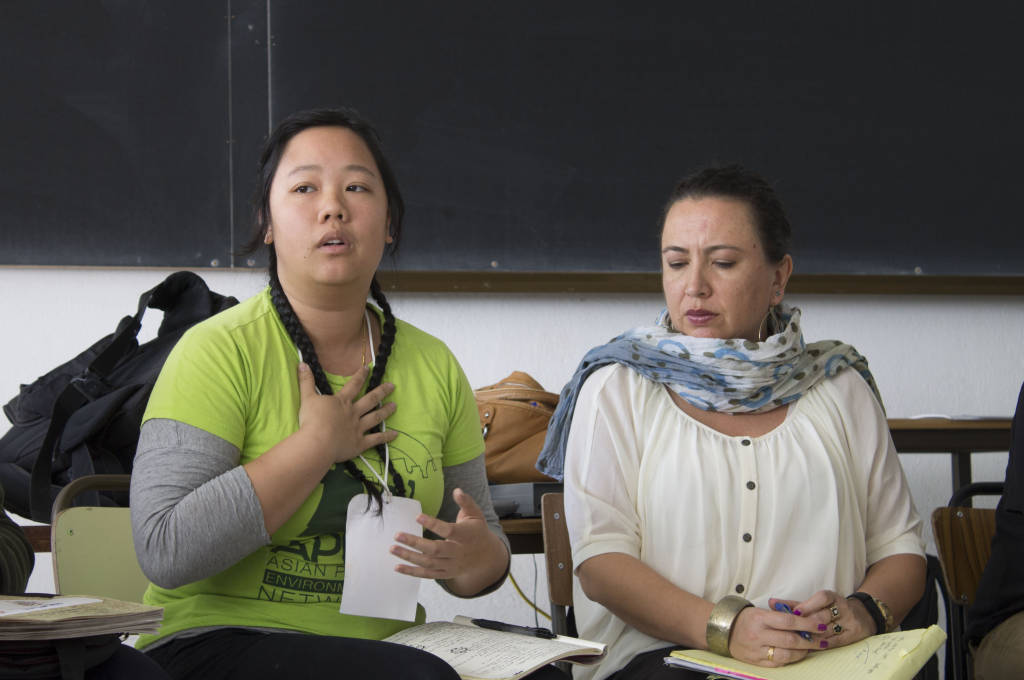“When we organize, as with divestment, the power of people always wins”
At the recent World Social Forum in Tunisia, activists from 4 continents gathered for a workshop about divestment and had some frank conversations about what divestment needs to do in order to become a truly global movement. Divestment can be so much more than a tool – it can be a part of building a just transition.
Just one month after Global Divestment Day took place spanning 6 continents, the workshop further emphasized the global reach of the divestment movement and its escalating strength as communities worldwide collectively withdraw the social license of the fossil fuel industry exposing their financial, political and environmental corruption.
We wish everyone could have been a part of this conversation – here are some great quotes and highlights
Growing Globally. Thinking Locally.
Divestment has quickly grown from a tool that began at U.S. universities. In order for divestment to be effective, we have to be aware of local realities as well as local solutions. At its core, divestment is about distributed actions that provides people a meaningful way to take action.
350’s Arab World Coordinator Sarah Rifaat discussed how divestment has shifted in the various new areas its growing in. In lots of places, universities don’t have the same endowments as U.S. colleges and so instead activists in Europe, Australia, Asia and Africa have decided to target banks and municipalities.
“Even though divestment was inspired by the apartheid movement in South Africa, there was no divestment campaign in Africa until October of last year. In the words of Archbishop Desmond Tutu: Divestment has come home to Africa.”
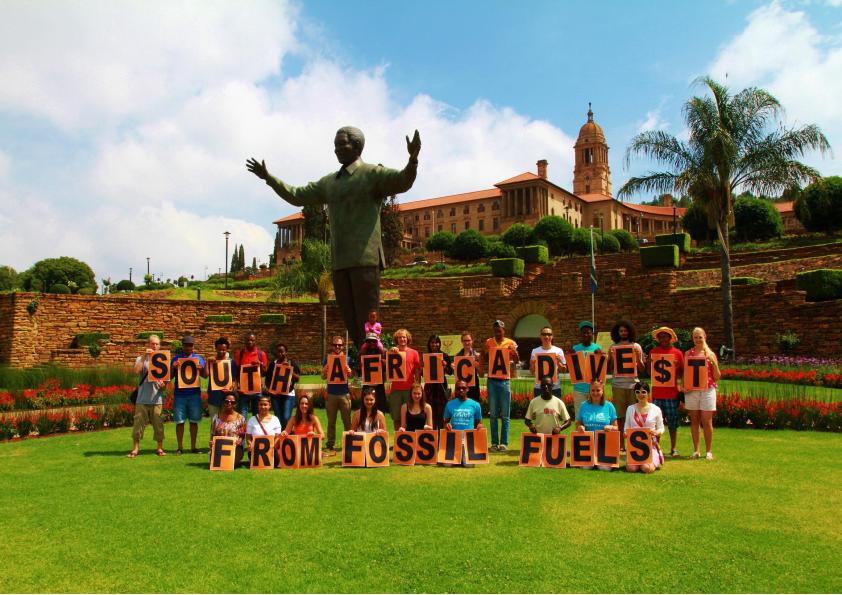
For example, 350 Africa has hijacked the advertisements of Nedbank, a key local bank, to push them to stop ‘greenwashing’ and to divest from coal. Check out their video here.
In order for divestment to spread, it has to keep on evolving to fit various local needs.
Tadzio Mueller from Rosa Luxembourg Foundation brought up some great points about how divestment needs to be carefully reworked in Germany if it’s going to support the transition away from coal. In west Germany, cities and people are so tightly connected with coal companies after centuries of production that we can’t just pull investments or shut down mines. These deep and long term relationships make ending coal a whole different struggle.
“This is our ask from the anti-coal movement in Germany of divestment – to work out strategies with which these municipalities can get out of RWE stock – If we don’t do that then we will be fighting an entire region and not just a bunch of cops when we are shutting down coal mines”
Stop the Investments Before They Even Start
Divestment is a powerful tool, and what is also crucial is stopping the investments before they even start.
A Tunisian activist shared the example of how in Tunisia since the 2011 revolution, people have worked hard to ensure investment mistakes weren’t repeated. The elites of the old regime deeply controlled industries, and so with the new constitution there was an article added where all new extractive contracts have to be be approved by the parliament. Tunisia is beginning again and they want to start right. The Tunisian constitution is one of 3 in the world that has climate issues incorporated into it.
“So to influence and fight oil companies… you can attack them by other means.”
Looking Towards the Future — How to Reinvest in a Just Transition
It’s not enough to just divest, but we also have to think about reinvesting in people and in a better system. Alvina Wong from Asian Pacific Environmental Network talked about the work her organization and the Climate Justice Alliance are doing in the U.S. with communities to create a just transition away from fossil fuels.
“We don’t want to just see the divestment of big institutions and banks and cities taking their money out of fossil fuels – we want to see that money going into the power of the people.”
“What we need to do is organize the people and liberate this mentality that there is no other way. And say actually – your creative solutions, your ideas to come together with your neighbors or families across the city to start your own co-op, your own solar energy co-op is viable.”
Alvina described her work as three-fold once we end the bad (our current extractive economy), we need to build the new and this entails:
1- Strengthening our democracy, specifically breaking the current funding of politicians by the fossil fuel industry
2- Change the narrative by exposing the truth behind the mainstream media
3- Move the money: global capital currently controlled by the 1% and shifting the power to the people essential as part of empowerment of local communities to implement their own alternative projects
(To learn more about the solutions already being implemented by Climate Justice Alliance, check out their website)
Tadzio also mentioned how in Germany, in their transition to renewables – 30% of they electricity comes from renewables (on a good day it’s 100%). Only 7% of that is contributed by 4 big companies, 60% is produced by individuals and community owned project.
Finally, Brazilian activist Moema Miranda from the Instituto Brasileiro de Analises Sociais e Economicas spoke about the need to have a collective long term vision.
“It’s not just the exploitation of the environment and the exploitation of people. No it’s not that — it’s that we are one. We are nature…The dispute is not where the wealth will be…it’s about rethinking our way of life. our way of being together. Our way of connecting. It’s not just rethinking our economy”
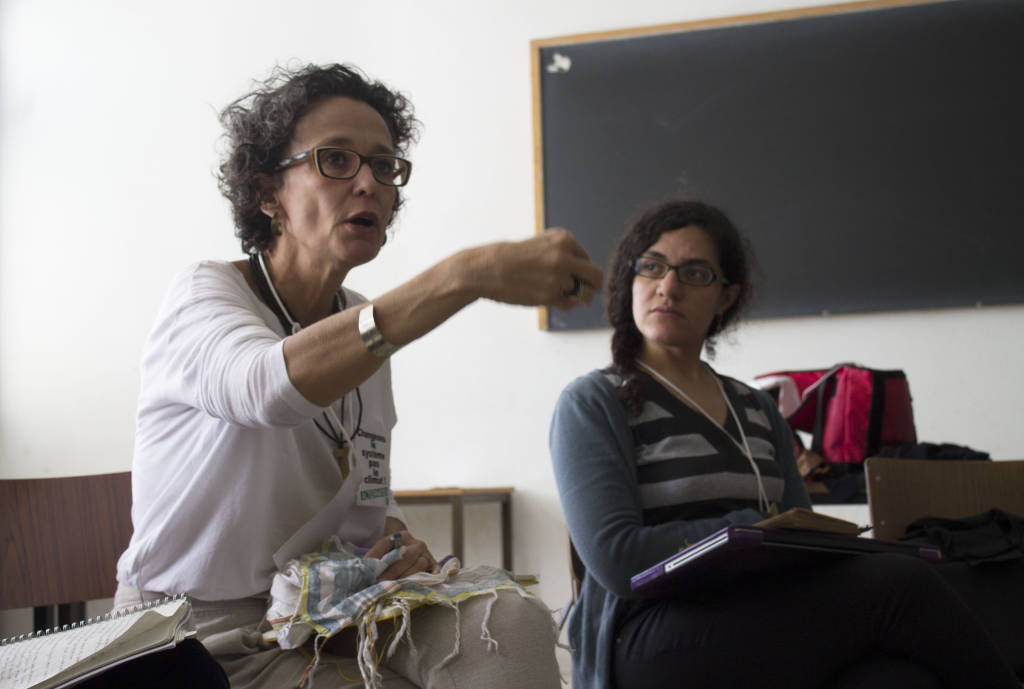
To see some of our other World Social Forum coverage – go here.
